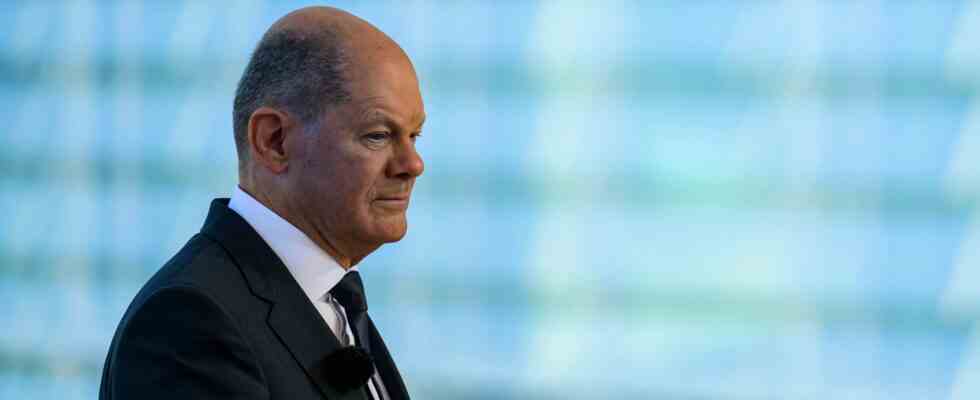Status: 09/19/2022 4:34 p.m
After Federal Minister of Economics Habeck, Chancellor Scholz is now also traveling to the Gulf region to hold talks on energy supplies. Because the government wants to become more independent of Russia – and to do this it relies on liquid gas.
Chancellor Olaf Scholz will visit three Gulf States next weekend, accompanied by business representatives. One focus of the trip will be securing energy supplies. Scholz will certainly be able to sign some contracts for liquefied natural gas (LNG) in the United Arab Emirates, said Economics Minister Robert Habeck.
A government spokesman, on the other hand, was much more cautious and only said that energy was one of the topics on the trip that Scholz was taking to Saudi Arabia, the United Arab Emirates and Qatar on Saturday and Sunday.
The energy group Uniper announced that it is pressing ahead with talks with Qatar about possible LNG supplies, but has not yet reached an agreement. Uniper has had a close business relationship with Qatar Energy for many years. “In this context, we are in ongoing talks with our Qatari partners to expand our deliveries,” it said.
Habeck emphasizes the importance of the LNG terminals
Habeck also pointed out that he had already done preliminary work for possible LNG deliveries during his own visit to the Arabian region. It is important that terminals for landing the fuel are built on German coasts this winter and next. The chances of commissioning in Brunsbüttel and Wilhelmshaven in winter are good.
If enough gas has also been saved and you are lucky with the weather, there is a chance of getting through this winter well. In the end, however, the memory is empty. We are currently moving towards a storage level of 90 percent, although we no longer buy gas at any price. After this winter, more terminals would have to go into operation in order to survive the coming winter well.
Gas levy will not be paid before November
The federal government has meanwhile decided that the first money from the gas levy to stabilize gas importers, which will take effect from October, should not reach the companies before November. A spokeswoman for the Federal Ministry of Economics said that the cabinet approved the later advance payments on Friday in a written circulation procedure.
The surcharge of 2.4 cents per kilowatt hour, which will apply from the beginning of October, is to be paid by every customer – private households and industry. The revenue is intended to offset the massive additional costs that importers like Uniper are currently having due to stopped deliveries from Russia.
The spokeswoman for the Ministry of Economics did not want to answer the question of whether state-taken over importers should also benefit from the gas surcharge. This could be relevant in the Uniper case, for example. Discussions are underway here about a significant state stake in the company.

